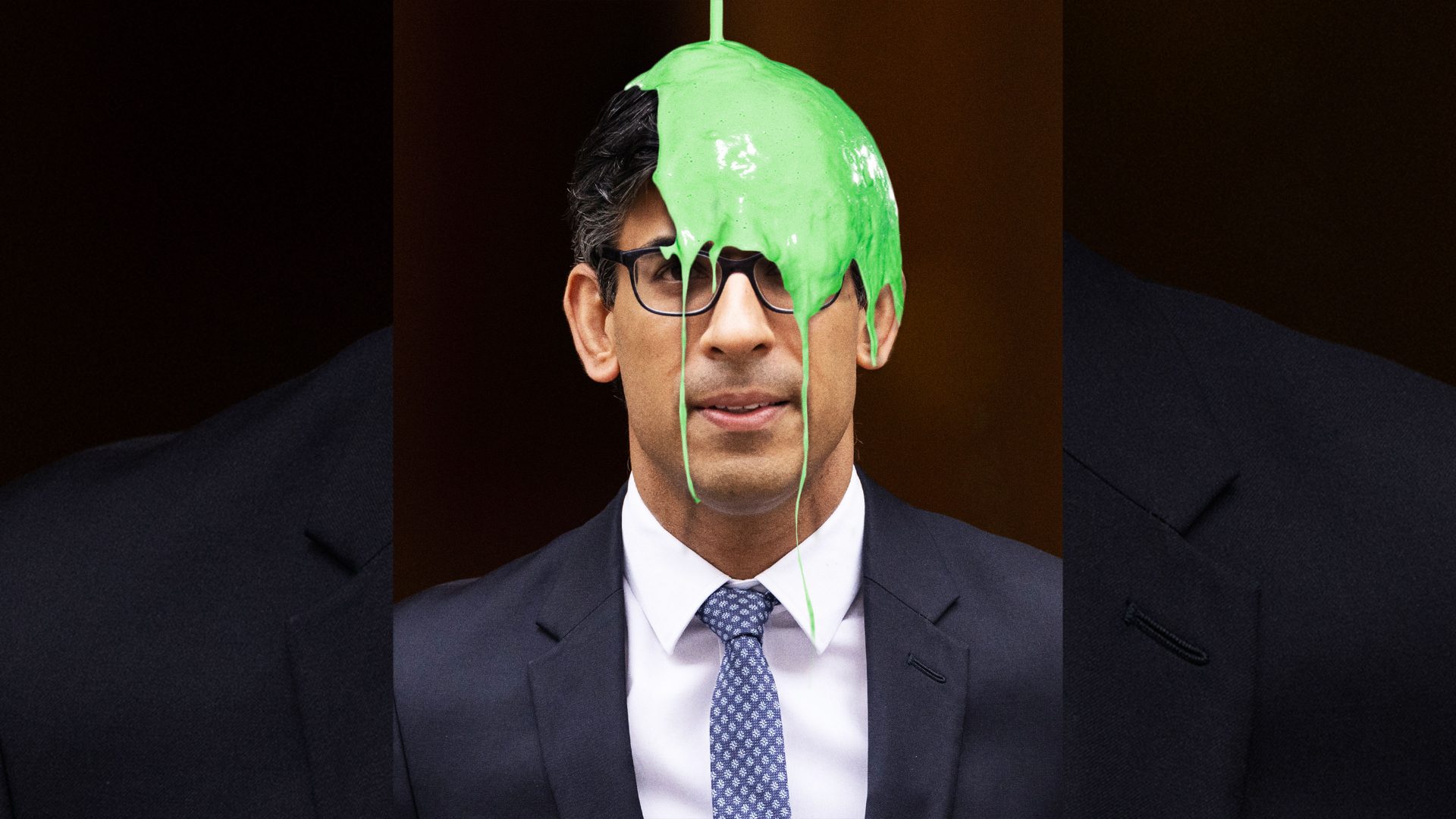Rishi Sunak is planning a Green Day and he hopes he’ll have the time of his life. There will be, we’re told, announcements on how he will boost green technologies, encourage battery production and invest in the future of zero carbon.
It had better be good. Almost every sector of British business is screaming in despair for a plan. And sceptics are wondering why, if this is a well-thought-through scheme, Sunak did not use Jeremy Hunt’s budget to show that the UK was serious about catching up with its rivals on green tech.
Some of what Hunt offered sounded decent – new supercomputer funding, new miniature nuclear reactor research and £20bn for carbon capture technology. But that is “up to” £20bn over 20 years. The chancellor even boasted: “We are world leaders in renewable energy.” It’s a dubious claim, but were it true, £20bn over 20 years would not keep us ahead.
Our rivals are investing huge amounts in green tech. The EU already has extensive subsidies for carbon capture, a rapidly expanding vehicle battery industry, and knows it must do even more now that America is throwing even more greenbacks at green projects. Joe Biden’s Inflation Reduction Act has unlocked around £300bn, and there is a real danger of UK companies moving to the US to get their hands on some of it.
The high-tech future belongs to the US, China and the EU. Everyone else is bringing up the rear, and Britain is dragging the dead weight of Brexit behind it as the leaders disappear into the distance. Does no one in government see the connection between the collapse of Britishvolt, the decision of Elon Musk and the Chinese carmaker BYD to avoid the UK because of Brexit, Biden’s IRA (Inflation Reduction Act – which includes funding for promoting green tech), the EU’s response, and the listing of ARM on the New York Stock Exchange, rather than London’s?
The US has staggering plans for electric vehicle growth. America currently produces only 10% of the world’s EVs, but Biden is offering a £6,100 subsidy per vehicle as long as manufacturers agree to make their batteries and the components inside them in the US, or in countries with which the US has a free trade agreement. There are strict time limits for compliance. It is real carrot-and-stick stuff, which has foreign firms queuing up to build new US factories.
The EU’s response is to loosen state subsidy rules so national governments can throw more money at their own green industries while encouraging skills and training. Europe is already building dozens of Gigavolt factories across the continent, while in the UK Britishvolt went to the wall without ever making a single battery.
More is expected in the medium term as the EU gears up to coordinate research, investment and development of everything from car batteries to heat pumps. No wonder the CBI warns that the UK economy is at risk because of what it calls a worldwide “subsidy arms race”.
The same is happening with semiconductors, the “brains” inside electronic devices. Biden’s £40bn CHIPS and Science Act, designed to “revitalise the US semiconductor industry”, has many UK companies knocking on the White House’s door.
Meanwhile, the UK semiconductor industry is crying out for more training, better education and help providing the long-term high-risk investment necessary to get production off the ground (something the UK has always been bad at). It is still waiting for the government to publish a paper on the subject.
The motor industry is desperately calling for a policy, too, to help its transformation from reliance on petrol and diesel. Now the Society of Motor Manufacturers and Traders has produced its own report on how to move towards the electric vehicle industry of the future, entitled “Race to Zero”. Meaning a race to zero emissions, although unless we change rapidly it may come to mean a race to zero car production in the UK.
As SMMT’s chief executive, Mike Hawes, puts it in his foreword: “We cannot ignore the fact that other countries and blocs are powering up their political and economic backing for their own automotive sectors.”
He says: “The EU is proposing a Green Deal Industrial Plan, easing restrictions on State Aid for these essential investments.” The answer is clear, at least to the SMMT: “We must scale up and do so rapidly. This means creating the conditions to retain and attract investment, capture earlier and greater UK-based value in battery production, drive the rapid growth of the electrified supply chain and secure the trade agreements that guarantee the supply of minerals and the openness of markets. This requires a government-led strategy and action delivered at pace.”
Good luck is all I can say – the government cannot match the level of investment by the US and EU, and although it may counter-attack with looser regulations, Brexit means it is now just a small player on the edge of Europe.
The government even has the evidence on its desk. It commissioned a report on UK science by Sir Paul Nurse, the Nobel Laureate and head of the Sir Francis Crick Institute. His conclusions are that while the government boasts of being a “global leader” in science, the UK is only good, but not outstanding, with a reputation inflated by historic successes and an over-dependence on a few successful outliers.
As the Institute for Public Policy Research puts it: “The UK risks being squeezed by its two largest trading partners.” And that failure to respond effectively to Biden’s IRA and reap the benefits of green technology will see “the UK not just falling behind in the global green race, but falling out of it altogether, with disastrous consequences for its economy and the environmental agenda.” It also says that the government has “its fingers in its ears” – so there is little chance of it doing anything meaningful.
Sunak will have his Green Day – but as the band’s hit song goes, he seems intent to lead British industry down an empty street on the boulevard of broken dreams.




